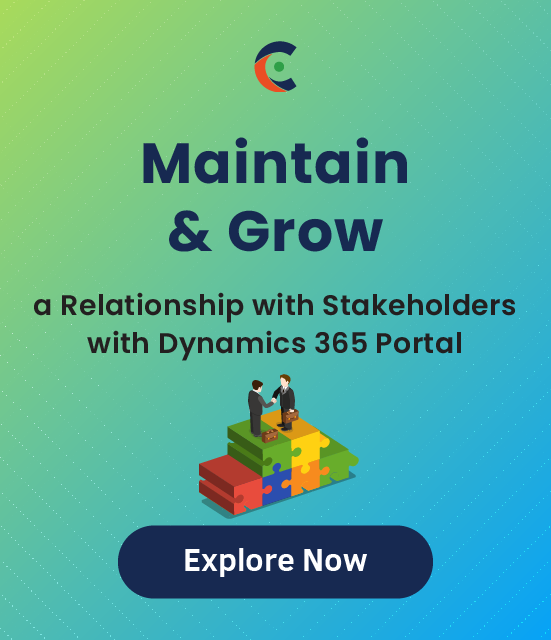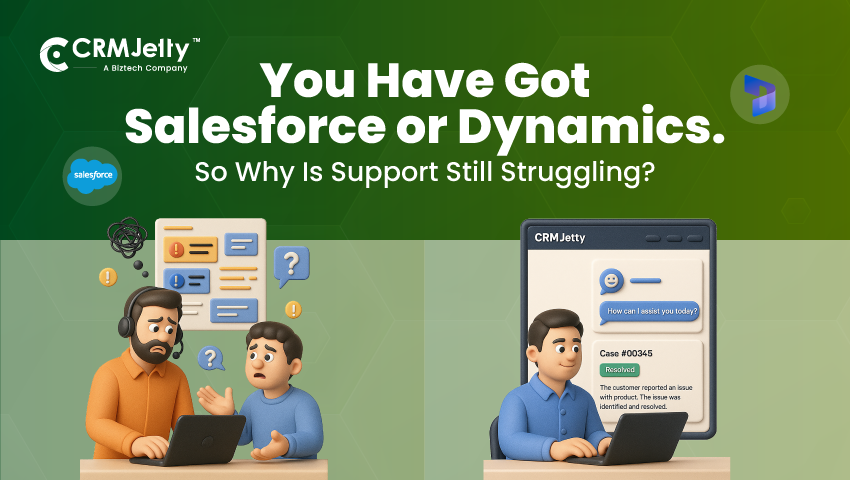For Dynamics 365 users, when they need a portal, PowerApps makes for a compelling case. It is first-party and therefore works seamlessly with the CRM. It is specially designed to work as an extension of the CRM, and therefore there is no room for error or issues.
PowerApps portal is carefully designed to work for all Dynamics users. So here’s an overview of it. It answers the basic questions of what it is, how it works, what it offers, and the benefits and challenges it presents in the long term.
Overview of PowerApps portal
Power Apps portals are a feature of Microsoft Power Apps that allows you to create and customize websites that anyone can access, regardless of whether they have a Power Apps license. Portals can be used to provide a variety of services to customers, partners, and employees, such as:
- Self-service portals for customers to view and update their account information
- Partner portals for partners to collaborate with your organization
- Intranet portals for employees to access company resources
Microsoft Power Pages are built on the same platform as Power Apps, so you can use the same tools and techniques to create them. You can also use data from a variety of sources, including Dynamics 365, SharePoint, and Azure SQL database.
Power Apps portals are a powerful way to extend the reach of your applications and services. They are easy to create and use and can provide various benefits to your customers, partners, and employees.
Features in PowerApps portal
Power Apps portals offer a wide range of features, including:
- Easy to create and use: Power Apps portals, even for people with no coding experience, are easy to create and use. You can use the drag-and-drop designer to create your portal and the built-in tools to add features and functionality.
- Secure: Power Apps portals are secure by default. They use industry-standard security measures to protect your data, and you can add additional security features as needed.
- Scalable: Power Apps portals can be scaled to meet your organization’s needs. You can create as many portals as needed and add users and data as needed.
- Cost-effective: Power Apps portals are a cost-effective way to extend the reach of your applications and services. You only pay for the users and data that you use.
Power Apps Portals Architecture
Power Apps portals are built on the following architecture:
- Portals service: The portals service is the core component of Power Apps portals. It provides the infrastructure and tools that you need to create and manage your portals.
- Portal templates: Portal templates are pre-built designs that you can use to create your portals quickly and easily.
- Portal components: Portal components are reusable building blocks that you can use to add features and functionality to your portals.
- Portal data sources: Portal data sources are the connections to the data you want to display in your portals.
Benefits of PowerApps portal
Power Apps portals offer a number of benefits, including:
- Increased reach: Power Apps portals can help you to increase the reach of your applications and services by making them available to anyone, regardless of whether they have a Power Apps license.
- Improved customer experience: Power Apps portals can help you improve the customer experience by providing a self-service portal where they can view and update their account information, collaborate with partners, and access company resources.
- Reduced costs: Power Apps portals can help you to reduce costs by providing a cost-effective way to extend the reach of your applications and services.
Challenges of PowerApps portal
Power Apps portals also have some challenges, including:
- Data synchronization: PowerApps portal uses caching to sync data, which can cause friction and is not real-time.
- Form layout: The portal only fetches CRM forms and does not allow customization. So you would need to put extra effort into creating and customizing forms you want to display on the portal and manage data between them.
- Field-level workflow: PowerApps portal only uses predefined blocks. A more comfortable way would be if you could design and create custom fields.
Overall, Power Apps portals are a powerful tool that can help you to extend the reach of your applications and services. They are easy to create and use, secure, scalable, and cost-effective. But there are some caveats to it. This is where third-party portals can give your workflow the flexibility it needs.
PowerApps Portal Tutorial
Setting up PowerApps takes a few steps. We have written a step-by-step tutorial on how to install PowerApps Portal in Dynamics 365 CRM, so you can see exactly how it’s done.
Introduction to CRMJetty’s Dynamics 365 Portal
Our Dynamics 365 Customer Portal makes for a convincing alternative to the PowerApps portal. Not only is it significantly more cost-effective, but it also comes with real-time synching with CRM, industry-standard payment gateway support for PayPal and Stripe, and customization options for everything, among other things.
Take a look at the features it has to offer directly in comparison to the PowerApps portal:
| Features | PowerApps | CRMJetty Portal |
|---|---|---|
| Data Sync Management | Uses caching | Offers real-time data sync |
| Customizable Forms Layout | Can only fetch CRM forms. It doesn’t allow customization. | Can create/fetch CRM existing forms and customize them as per your business logic using drag and drop and code builder |
| Payment Gateway Support | Supports eWAY Payment Gateway | Supports PayPal and Stripe Payment Gateway |
| Advance Field Level Workflows | Can only use predefined blocks. | Design forms, create custom fields, and collect data based on workflows |
| JavaScript Support | Supports JavaScript at the page level but doesn’t support code in the Canvas app. | Supports JavaScript and CSS at the page level. |
All product and company names are trademarks™, registered® or copyright© trademarks of their respective holders. Use of them does not imply any affiliation with or endorsement by them.







